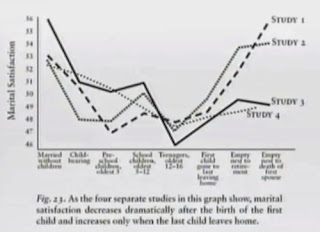The Things We Think Make Us Happy... Don't
What's likelier to make you happy: striking it rich in the lottery or getting paralyzed from the waist down?
The answer is obvious, right? Winning the lottery!
But when psychologists studied the question empirically, the results did not precisely follow our intuitive predictions. Oh, at first they did. In the ensuing 12 months after hitting the jackpot, lottery winners were significantly happier than paraplegics. Exotic trips and extravagant luxuries easily topped losing one's ability to walk.
But after a year, the gap vanished. Both groups reverted to the same levels of happiness they experienced before their life changing events. Once they acclimated to their new status, their expectations altered to match. Paraplegics found joy in small victories, while lottery winners grew accustomed to their wealthy lifestyle.
This example illustrates a fundamental error of human thinking: we are incredibly poor at gauging what will make us happy. University of Southern Indiana philosopher Garret Merriam attributes this ineptitude to what Harvard psychologist Dan Gilbert calls "impact bias."
"We're generally pretty good at imagining what it's going to feel like in the short term -- over the next couple days, the next week or so -- and we project that feeling out in perpetuity for much, much further than it will actually last. That really throws off our self evaluations of what's going to make us happy."
It's not just winning the lottery, of course. Many things that we think will improve our happiness over the long-term in fact do not. Moving to California? Nope. Getting married? Nada. Having children? Definitely not.
The graph is a tad difficult to read, but the description makes its message clear:
"As the four separate studies in this graph show, marital satisfaction decreases dramatically after the birth of the first child and increases only when the last child leaves home."
It should be noted that marital satisfaction is not a perfect proxy for happiness. Nevertheless, the data is enough to counter the conventional wisdom that children make us happy.
If we can't count on reproduction to make us content, surely that promotion at work will! Sorry, no. A 2012 study found "no evidence that promotions impact general health or life satisfaction." However, the researchers noted that two or more years after a promotion worker mental health is significantly lower, driven predominantly by increased anxiety.
"Fame, talent, wealth, beauty; most people think that 'if I only had these things I would be happy,'" Merriam stated at a 2011 talk at Sacramento State University. "But it turns out that the people who have these things are not on average happier than people who lack these things. The grass is always greener on the other side of the street."






0 comments:
Post a Comment